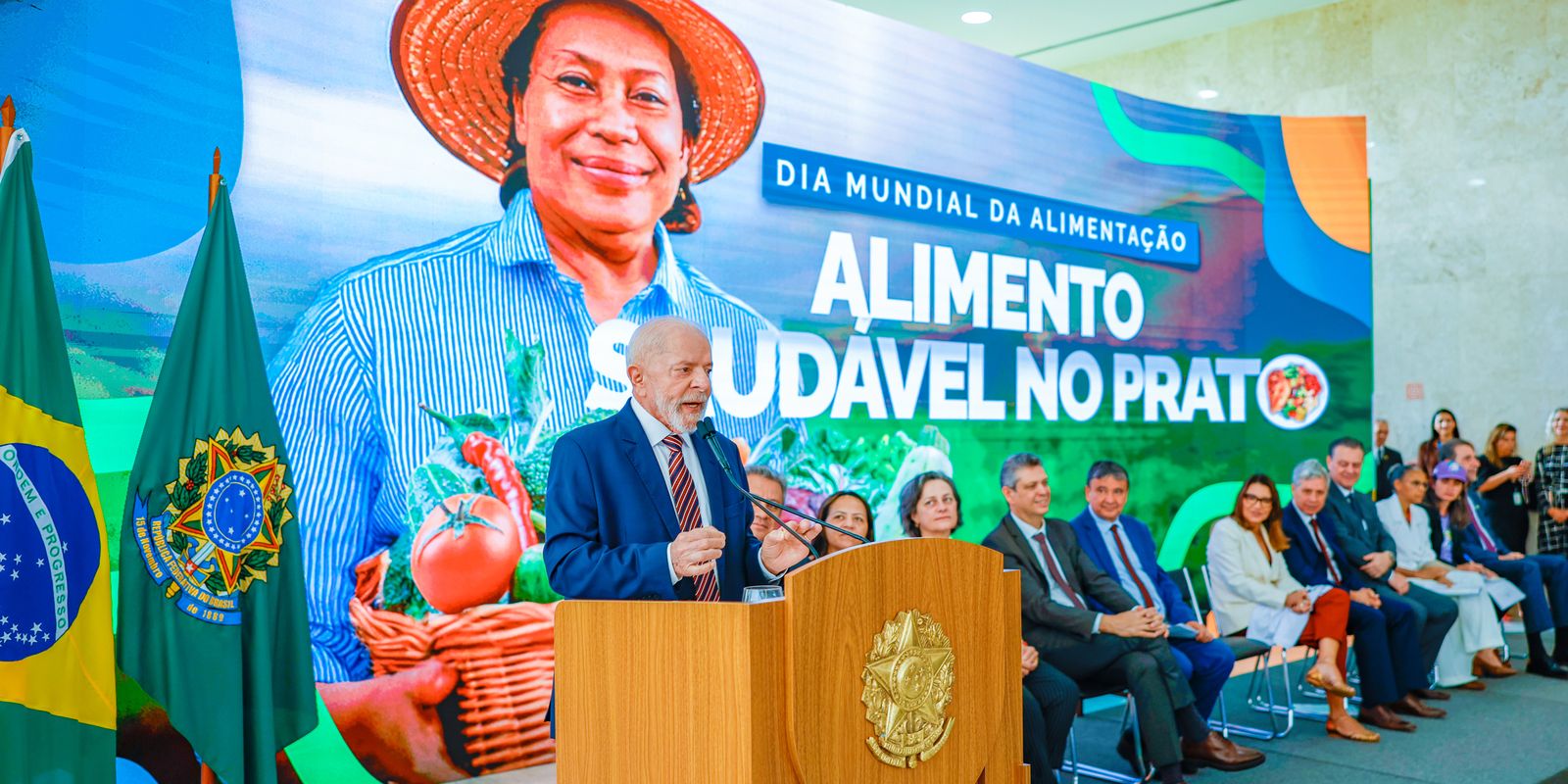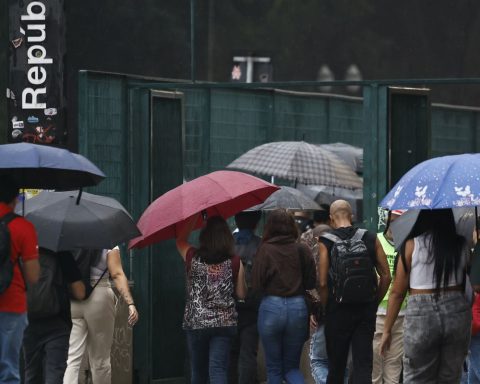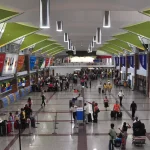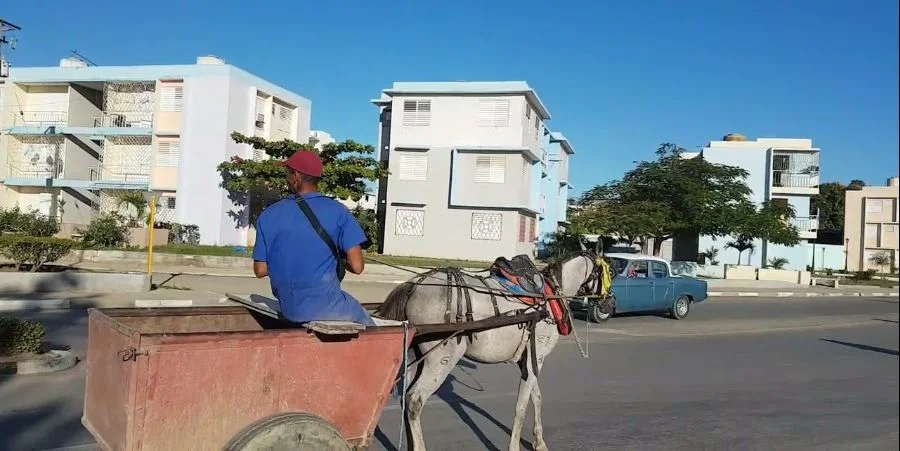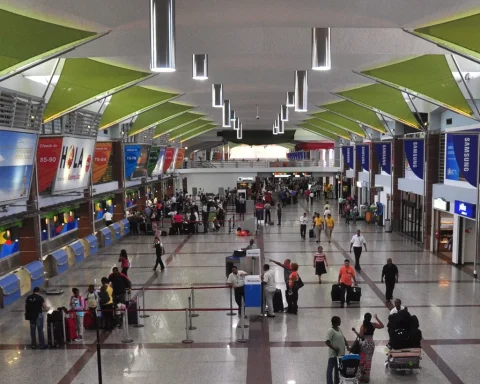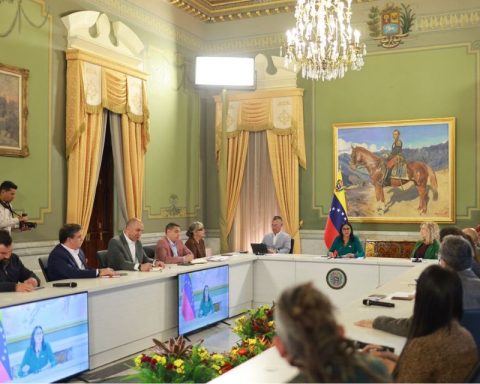President Luiz Inácio Lula da Silva launched, this Wednesday (16), the Arroz da Gente Program to stimulate production and the formation of grain stocks in the country. Around R$1 billion will be invested in the initiative to purchase up to 500 thousand tons of the product.
Small and medium-sized producers who want to produce rice will be able to sign option contracts with the federal government, which will guarantee the purchase of production at an already established price. During the ceremony, at Palácio do Planalto, the Minister of Agrarian Development and Family Agriculture, Paulo Teixeira, explained that the parameters of the option contracts were established in partnership with the Ministries of Finance and Agriculture.
“The contracts will stimulate rice production by up to 500 thousand tons, helping to mitigate the losses of the 2023 and 2024 harvests due to drought and floods in the South Region,” he said. “This program aims to expand rice production through family farming and promote regional diversity and cultivar varieties,” he added.
The Arroz da Gente Program is part of the National Food Supply Plan (Planaab), called Alimento no Prato, and is launched after the auction for the purchase of imported rice failedin May, by the National Supply Company (Conab), and canceled the following month in the face of allegations of irregularities by the winning companies. A new notice was promised by the government, but the provisional measure that authorized the auction lost its validity before being voted on by the National Congress.
The auction aimed to guarantee supply and stabilize product prices on the domestic market, which had an average increase of 14%, reaching 100% in some places, following the floods in Rio Grande do Sul in April and May of this year. The state is responsible for around 70% of the rice consumed in the country. Local production was affected both on the farm and in warehouses, in addition to having distribution affected by logistical issues in the state.
Hunger Map
The Arroz da Gente Program is part of the set of actions presented today by the government to supply the population with food and encourage organic production, in celebration of World Food Day, and are included in the National Food Supply Plan (Planaab), named of Food on the Plate, and in the National Plan for Agroecology and Organic Production (Planapo).
World Food Day is celebrated globally on October 16, the date of founding of the Food and Agriculture Organization of the United Nations (FAO) in 1945.
In a speech, President Lula reaffirmed his commitment to taking Brazil off the Hunger Map again by 2026. “When we return [para o terceiro mandato] there were already 33 million people going hungry again. We have already removed, in 1 year and 10 months of government, 24.5 million people from the Hunger Map again, and our idea is to remove everyone from hunger until the end of the mandate”, he said, demanding his ministers to actions are, in fact, taken from paper. “This cannot be a dead letter, this has to happen”, he stated.
The Hunger Map is published annually by FAO and presents the number of people facing hunger and food insecurity in the world. A country enters the list when more than 2.5% of its population faces chronic food shortages. Brazil had left the Hunger Map in 2014 and maintained its position until 2018. Between 2019 and 2022, there was an increase in food and nutritional insecurity and the country was once again included in the organization’s report.
In 2023, more than 24 million people will emerge from food insecurity serious in Brazil.
The president reaffirmed that the Fighting hunger is a political choice made by governments and recalled that Brazil will launch the Global Alliance against Hunger and Poverty at the G20 Leaders Summit, in November, in Rio de Janeiro.
“We can say that there is drought, we can say that there is excess rain, we can say whatever we want, but the truth is that the only explanation for the existence of hunger is something called irresponsibility on the part of those who govern the countries, who governs the states. The State must have the ability to prioritize who it wants to govern, we have to make choices”, said Lula.
Food safety
In addition to the Arroz da Gente Program, the Alimento no Prato Plan has measures to expand popular grocery stores and supply centers across the country, to facilitate access to healthy and fresh food. Initially, six new supply centers will be implemented: in Bahia, Ceará, Rio Grande do Norte, Sergipe and two in São Paulo.
“There are 29 initiatives and 92 strategic actions to create an inclusive and structured supply system that guarantees the right to food and food sovereignty from production to the plate”, explained minister Paulo Teixeira, also citing the incentive for food production healthy foods in sustainable systems, mainly observing the foods in the Brazilian basic basket.
For the president of the National Council for Food and Nutritional Security (Consea), Elisabetta Recine, the simultaneous launch of the two plans represents the commitment of the government and organized civil society to “untie two of the main knots that make the realization of human rights adequate nutrition is still a major challenge.”
According to her, the way food is produced and consumed “is one of the main contributors to the climate crisis”, which is why she argued that it is necessary to move forward “with commitment, budget and effective practices to transform the food system”.
“[É preciso] a production that does not poison the land, water, people, that dialogues with nature and our precious biodiversity, that produces food for good living in a shared way, that allows all people without distinction of race, color , gender and income can enjoy good and cheap food”, he said.
“[É necessário ainda] resume the responsibility of the Brazilian State in guaranteeing a capillarized and diversified network of supply equipment that is based on local development, which strategically implements fairs, markets, small businesses in the outskirts, on the way from home to work, at times that facilitate the daily lives of people, that we expand, as we have never dared, access to public purchases from family and peasant agriculture, that we can cushion national and international speculative movements in food prices with strategic stocks, that we can recover the area cultivated for beans, cassava, our food. That’s what this morning’s announcements are about,” he argued.
Organic production
The National Plan for Agroecology and Organic Production (Planapo), in turn, will bring together actions to strengthen the production chains of organic and agroecological products. It foresees initiatives aimed at research and innovation, incentives for public purchases and the inclusion of women, young people, indigenous people and quilombolas in family farming, in addition to financial incentive actions and support for the agroecological transition, sustainability and environmental conservation.
There are 197 initiatives, involving 14 ministries. According to Minister Paulo Teixeira, Planapo is committed to allocating R$6 billion in credit within the scope of the National Program for Strengthening Family Agriculture (Pronaf) for organic and/or agroecological production; R$115 million in support aimed at productive inclusion and R$100 million in partnership with the Banco do Brasil Foundation and the National Bank for Economic and Social Development (BNDES).
The government also wants to promote a new stage of replacement of highly toxic and highly dangerous pesticides used in various crops in the country. “Several chemicals already banned in Europe and the United States are still widely used here in Brazil, and these chemicals should be replaced by biological ones. Best of all, bioinputs are capable of guaranteeing high productivity, high quality and at a lower cost,” said Teixeira.
According to the minister, there is still no definition of the products that will be affected by the measure.
